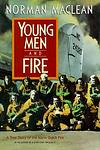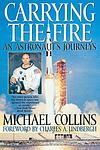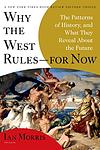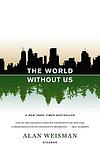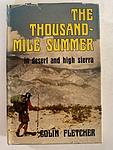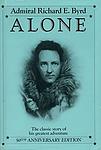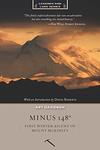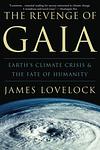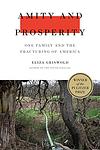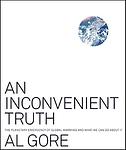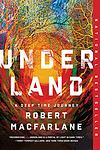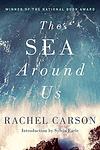The Greatest "Physical Sciences" Books of All Time
Click to learn how this list is calculated.
This list represents a comprehensive and trusted collection of the greatest books. Developed through a specialized algorithm, it brings together 300 'best of' book lists to form a definitive guide to the world's most acclaimed books. For those interested in how these books are chosen, additional details can be found on the rankings page.
Genres
The "Physical Sciences" category encompasses a broad range of books that delve into the non-living systems of the natural world, offering insights into the fundamental principles and phenomena that govern the universe. This category includes disciplines such as physics, chemistry, astronomy, geology, and meteorology, among others. Books within this genre may cover topics from the subatomic particles and forces that constitute the fabric of space-time to the vast cosmic structures of galaxies and the universe at large. They can also explore the chemical reactions that underpin the behavior of matter, the geological processes that shape our planet, and the atmospheric dynamics that influence our weather and climate. Whether aimed at students, professionals, or enthusiasts, these books serve as a gateway to understanding the laws of nature and the scientific methodologies used to uncover them, often combining theoretical concepts with practical applications and the latest research findings.
Countries
Date Range
Reading Statistics
Click the button below to see how many of these books you've read!
Download
If you're interested in downloading this list as a CSV file for use in a spreadsheet application, you can easily do so by clicking the button below. Please note that to ensure a manageable file size and faster download, the CSV will include details for only the first 500 books.
Download-
26. Young Men and Fire by Norman Maclean
The book tells the tragic story of 13 smokejumpers who lost their lives in the 1949 Mann Gulch fire in Montana. The author examines the circumstances leading up to the disaster, the fire's aftermath, and its lasting impact. The narrative combines elements of reportage, biography, and nature writing, and it serves as a meditation on writing, grief, and the human character.
-
27. Carrying the Fire by Michael Collins
"Carrying the Fire" is an autobiographical account of an astronaut's journey to the moon and back. It provides an inside look into the life of an astronaut, the rigorous training they undergo, the thrill and dangers of space travel, and the awe-inspiring experience of seeing Earth from space. The book also delves into the technical aspects of space missions, making it an informative read for those interested in space exploration.
-
28. The Influence of Sea Power Upon History, 1660-1783 by Alfred Thayer Mahan
This book is a comprehensive examination of the importance of naval warfare in the period between 1660 and 1783. The author argues that sea power was a crucial factor in determining the outcomes of historical events during this period, including the rise and fall of empires and the outcomes of wars. The book provides detailed analyses of major naval battles, strategies, and technologies, as well as the economic and political factors that influenced the development of naval power. It is considered a seminal work in the field of naval history and strategy.
-
29. The Dragons of Eden by Carl Sagan
This book explores the fascinating topic of the evolution of human intelligence, from the big bang to the present day. The author uses a blend of psychology, anthropology, and biology to propose theories on how the human brain has evolved over time. The book also delves into the role of reptilian and mammalian brains in human evolution, while drawing parallels between the development of the brain and the cosmos. The author's theories are supported by a wide range of scientific evidence, making this a compelling read for anyone interested in the evolution of intelligence.
-
30. Dart by Alice Oswald
"Dart" is a narrative poem that traces the journey of the River Dart in Devon, England, from its source to the sea. The poem is a vivid exploration of the river's natural and human environments, and the voices of the people who live and work along its banks. It is a celebration of the river's vitality and diversity, and a meditation on the complex interplay between nature and human activity.
-
31. Seven Brief Lessons on Physics by Carlo Rovelli
This book is a succinct and enlightening introduction to the fundamental concepts of modern physics, presented in seven easy-to-understand lessons. The lessons cover topics such as general relativity, quantum mechanics, the architecture of the cosmos, particles, quantum gravity, probability, time, and the human perspective on these scientific wonders. The book aims to bridge the gap between the complex world of modern physics and the general public's understanding, making the often intimidating subject accessible and engaging for all readers.
-
32. Why the West Rules - For Now: The Patterns of History, and What They Reveal About the Future by Ian Morris
This book is a comprehensive exploration of the historical and cultural patterns that have led to Western dominance in the world. The author uses a broad range of evidence from archaeology, genetics, and linguistics to trace the development of East and West from prehistoric times to the present, arguing that physical geography, rather than culture, religion, or great men, is the primary driving force behind the rise of the West. The book also offers a forecast for the future, predicting a shift in global power from the West to the East.
-
33. The Expanding Universe by Arthur Eddington
"The Expanding Universe" is a scientific exploration of the concept of an ever-growing universe. The author delves into the theories and evidence that support this idea, including the redshift of light from distant galaxies and the implications of Einstein's theory of general relativity. The book also discusses the philosophical and theological implications of a universe that had a beginning and will have an end, making it a fascinating read for both scientists and general readers interested in cosmology.
-
34. Almagest by Ptolemy
"Almagest" is a seminal work on astronomy and mathematics, written in the 2nd century. The book presents a comprehensive system of the world, including a detailed account of the fixed stars and the motions of the planets. It also includes a mathematical toolkit that was essential for understanding the heavens in its time, such as a catalogue of stars, the lengths of the tropical year and the lunar month, and the theory of the Sun, Moon, and planets. The book's geocentric model, where the Earth is at the center of the universe, was widely accepted until the Copernican Revolution.
-
35. Epitome of Copernican Astronomy by Johannes Kepler
This book is a comprehensive exploration of the Copernican system of astronomy. The author delves into the theories and principles proposed by Nicolaus Copernicus, discussing the heliocentric model of the universe where the Sun, rather than the Earth, is at the center. The book includes detailed explanations and mathematical proofs supporting Copernicus's theories, making it a valuable resource for understanding the foundations of modern astronomy.
-
36. Collapse by Jared Diamond
"Collapse" is an exploration of why certain societies throughout history have thrived while others have deteriorated and collapsed. The book delves into environmental problems, climate change, rapid population growth, and unwise political decisions as factors that contribute to the downfall of a civilization. The author uses examples from history such as the Mayans, the Vikings in Greenland, and modern examples like Rwanda and Haiti, to illustrate his points. It serves as both a historical analysis and a warning for modern societies to learn from the past in order to avoid a similar fate.
-
37. The Exploration of the Colorado River by John Wesley Powell
This book is a firsthand account of the first U.S. government-sponsored passage through the Grand Canyon. The author, a one-armed Civil War veteran, and his team of nine men risked their lives to accomplish this feat in 1869. They faced dangerous rapids, food shortages, and potential attacks from Native American tribes. The narrative provides detailed descriptions of the geography, geology, and Native American inhabitants of the region, offering invaluable insights into the uncharted territory of the American West.
-
38. The World Without Us by Alan Weisman
This book is a thought-provoking exploration of what would happen to the natural and artificial world if humans suddenly disappeared. It delves into how our massive infrastructure would decay and how, over time, the Earth would heal from human impact, erasing all traces of our civilization. The author uses this premise to illustrate the lasting impact of humanity on the planet, providing a unique perspective on issues like climate change, pollution, and deforestation.
-
39. The Man Who Walked Through Time by Colin Fletcher
This book is a captivating account of the author's two-month solo journey on foot through the Grand Canyon. The author, a seasoned hiker, narrates his experiences with vivid detail, describing the breathtaking landscapes, diverse wildlife, and the profound solitude he encounters. As he travels, he also delves into the geological history of the canyon, contemplating the passage of time and the impermanence of human life. The book is a remarkable blend of adventure, nature writing, and philosophical reflection.
-
40. Gipsy Moth Circles the World by Francis Chichester
This book chronicles the author's solo sailing journey around the globe in his yacht, the Gipsy Moth IV. Battling harsh weather conditions, loneliness, and equipment failure, he successfully circumnavigates the world, starting and ending in England, and becoming the first person to do so by the clipper route, and the fastest circumnavigator, in nine months and one day overall. The book details his adventure and the challenges he faced, providing an intimate look at the world of sailing and exploration.
-
41. Alone by Richard Byrd
This book is a riveting account of the author's time spent alone in the Antarctic wilderness. He details his experiences of solitude, the harsh climate, and the physical and mental challenges he faced during his isolation. The narrative also provides a deep insight into his struggle for survival, his observations of the natural world, and his reflections on the human condition.
-
42. Minus 148 by Art Davidson
"Minus 148" is a gripping account of a mountaineering team's harrowing winter ascent of Mount McKinley in Alaska. The team faces a brutal storm that traps them near the summit, forcing them to endure temperatures of -148 degrees Fahrenheit. Despite the dire conditions and tragic loss of life, the survivors demonstrate an incredible will to live, leading to one of the most remarkable rescues in mountaineering history. The book serves as a testament to the human spirit's resilience and the power of teamwork in the face of adversity.
-
43. Earth: An Intimate History by Richard Fortey
This book provides a comprehensive understanding of the Earth's geological history. The author explores how the planet's diverse landscapes were formed over billions of years, examining various regions around the world from Hawaii to the Alps. The narrative intertwines scientific theories with engaging storytelling, making complex geological concepts accessible to a general audience. The book also emphasizes the impact of geological forces on human history and culture.
-
44. The Weather Makers by Tim Flannery
"The Weather Makers" is an informative and thought-provoking book about climate change. It explores the history of global warming, its current impact on our planet, and the potential future consequences if we do not take action. The book also discusses the role of humans in accelerating climate change, the science behind it, and the measures that can be taken to mitigate its effects. It serves as a comprehensive guide to understanding the complexities of climate change and urges the reader to acknowledge and act upon this urgent global issue.
-
45. The Revenge of Gaia by James Lovelock
The book presents a compelling argument about the Earth's self-regulating system, Gaia theory, and the severe impact of climate change on it. The author warns that if humans continue to harm the environment, Gaia will take revenge, leading to a much hotter and less hospitable planet. He proposes solutions to mitigate the damage, such as nuclear power and sustainable technology, emphasizing the urgency to act before it's too late.
-
46. Amity and Prosperity: One Family and the Fracturing of America by Eliza Griswold
This book is a detailed account of a family living in rural Pennsylvania, whose lives are disrupted by the fracking industry. It explores the economic desperation that leads small towns to welcome fracking, the environmental and health disasters that follow, and the legal battles that families must wage to protect their rights. The narrative also delves into the political and social divides that the fracking industry exacerbates, providing a comprehensive look at the impact of this controversial practice on American society.
-
47. An Inconvenient Truth: The Planetary Emergency of Global Warming and What We Can Do About It by Al Gore
This book is a comprehensive guide to understanding the global climate crisis and the steps that can be taken to combat it. The author, a former Vice President and environmental activist, presents scientific evidence of global warming, its causes, and its potential effects, including rising temperatures, melting ice caps, and extreme weather events. The book also provides practical solutions to the problem, such as reducing carbon emissions, increasing renewable energy use, and promoting sustainable practices. The author's aim is to educate readers about the urgency of the issue and inspire them to take action.
-
48. Underland by Robert Macfarlane
"Underland" is a deep exploration into the world beneath our feet, taking readers on a journey into the Earth's underworlds. The book delves into the hidden landscapes of the subterranean, from the catacombs of Paris, the underground fungal networks in forests, to the deep sea caves and glacial crevasses. It beautifully combines natural history, mythology, and environmental science, while exploring themes of human impact on the planet, our relationship with darkness, and the concept of deep time.
-
49. 2010: Odyssey Two by Arthur C. Clarke
"2010: Odyssey Two" by Arthur C. Clarke is a science fiction novel that follows a joint Soviet-American mission to investigate the mysterious events surrounding the spaceship Discovery One, which disappeared nine years earlier on its mission to Jupiter. As the crew embarks on their journey, they encounter strange occurrences and discover a hidden alien presence on Jupiter's moon, Europa. With tensions rising and the fate of humanity at stake, they must uncover the truth behind the monoliths and face the unimaginable consequences of their discoveries.
-
50. The Sea Around Us by Rachel Carson
This book is a compelling exploration of the world's oceans, delving into their geological and biological processes. The author examines the history of the seas, from their formation millions of years ago to their present state. She discusses the sea's impact on climate and weather, its fascinating ecosystems, and the human exploration and exploitation of the oceans. The book is both a scientific study and a poetic tribute to the power and mystery of the sea.
Reading Statistics
Click the button below to see how many of these books you've read!
Download
If you're interested in downloading this list as a CSV file for use in a spreadsheet application, you can easily do so by clicking the button below. Please note that to ensure a manageable file size and faster download, the CSV will include details for only the first 500 books.
Download